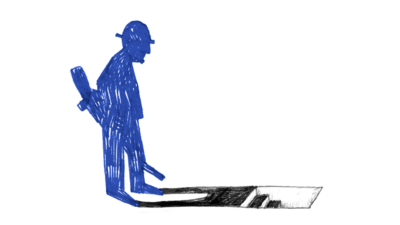US military struggling to stop suicide epidemic among war veterans
The Guardian
Last year, more active-duty soldiers killed themselves than died in combat. And after a decade of deployments to war zones, the Pentagon is bracing for things to get much worse
An excerpt from the article:
For William Nash, a retired Navy psychiatrist who directed the marine corps’ combat stress control programme, William Busbee’s expressions of torment are all too familiar. He has worked with hundreds of service members who have been grappling with suicidal thoughts, not least when he was posted to Fallujah in Iraq during the height of the fighting in 2004.
He and colleagues in military psychiatry have developed the concept of “moral injury” to help understand the current wave of self-harm. He defines that as “damage to your deeply held beliefs about right and wrong. It might be caused by something that you do or fail to do, or by something that is done to you – but either way it breaks that sense of moral certainty.”
Contrary to widely held assumptions, it is not the fear and the terror that service members endure in the battlefield that inflicts most psychological damage, Nash has concluded, but feelings of shame and guilt related to the moral injuries they suffer. Top of the list of such injuries, by a long shot, is when one of their own people is killed.
“I have heard it over and over again from marines – the most common source of anguish for them was failing to protect their ‘brothers’. The significance of that is unfathomable, it’s comparable to the feelings I’ve heard from parents who have lost a child.”
Incidents of “friendly fire” when US personnel are killed by mistake by their own side is another cause of terrible hurt, as is the guilt that follows the knowledge that a military action has led to the deaths of civilians, particularly women and children. Another important factor, Nash stressed, was the impact of being discharged from the military that can also instil a devastating sense of loss in those who have led a hermetically sealed life within the armed forces and suddenly find themselves excluded from it.
That was certainly the case with William Busbee. In 2011, following his return to Fort Carson in Colorado after his third and last tour of Afghanistan, he made an unsuccessful attempt to kill himself. He was taken off normal duties and prescribed large quantities of psychotropic drugs which his mother believes only made his condition worse.
Eventually he was presented with an ultimatum by the army: retire yourself out or we will discharge you on medical grounds. He felt he had no choice but to quit, as to be medically discharged would have severely dented his future job prospects.
When he came home on 18 January 2012, a civilian once again, he was inconsolable. He told his mother: “I’m nothing now. I’ve been thrown away by the army.”










